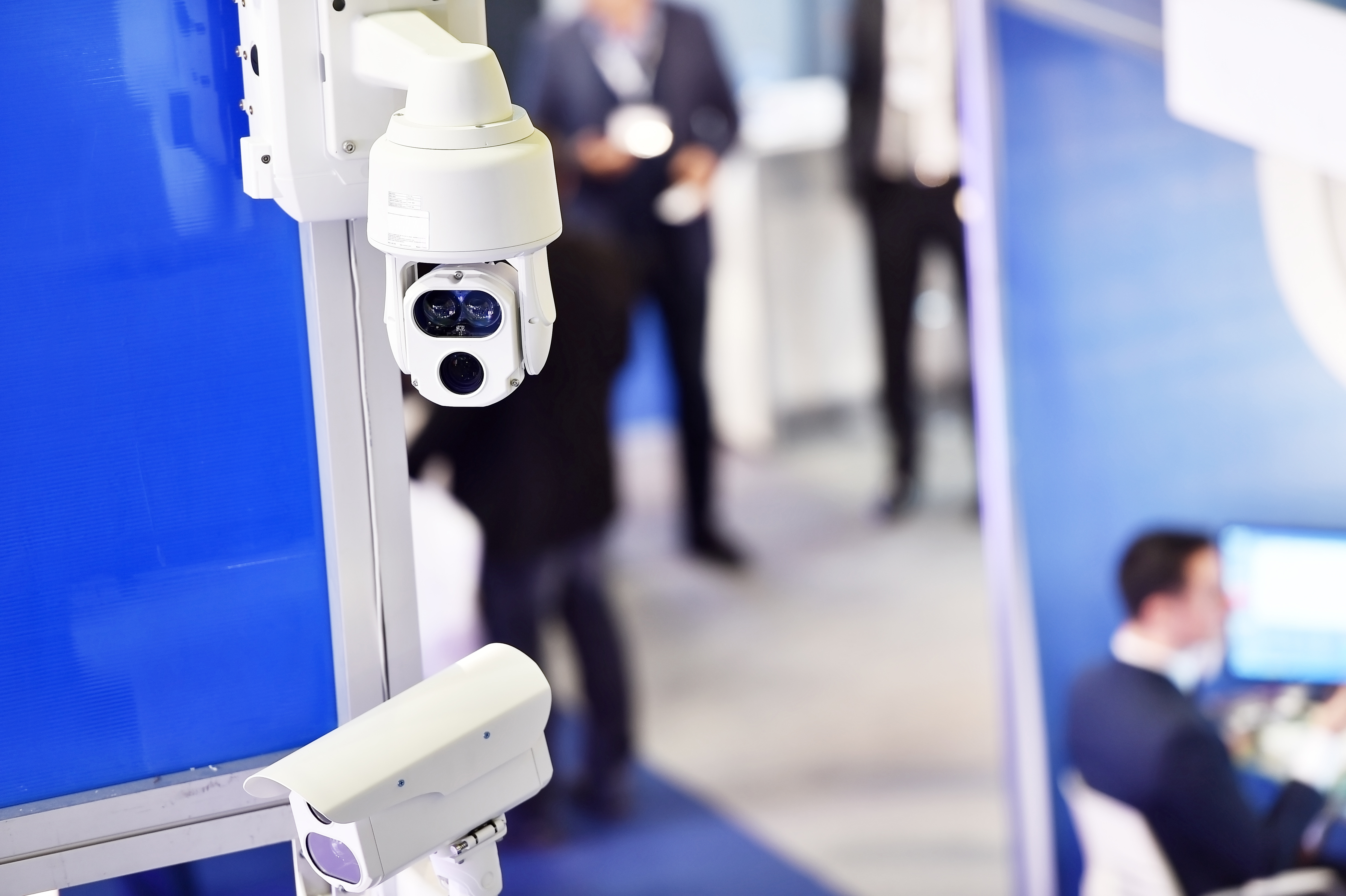At a trade show a few years ago, a home improvement company owner was anxious to show me how efficient his new phone room operation was. He whipped out his smart phone, tapped the screen a few times, and—presto!—there was the phone room, live. His phone was synced to TV cameras set up in the room where leads were generated, qualified, turned into appointments, the appointments confirmed, and the unsold ones set up for rehash. But is that legal?
According to FindLaw, it is. “Many employers use video cameras to prevent internal theft or for security purposes,” notes the legal site, “which generally is permissible as long as the employers notify workers about the surveillance.”
Presumably, he had. Many companies monitor on the job behavior. According to UpCounsel, an online marketplace for legal services and information, 48% of employers implement video monitoring as a security device (for instance, to guard parking lots), and 7% use it to “gauge worker productivity, and not for security purposes.”
Legally Permissible
In the last 10 years, technology has afforded lots of ways to monitor human behavior, and employers have used it to track employee performance. But state (and sometimes federal) law restricts what you can do, when you can do it, and how you can do it.
Say, for instance, you insist that salespeople have a GPS app on their personal smartphones. Now you know whether or not they’re on time for appointments, how long they were in the house, etc. But suppose you, or your sales manager, give in to the temptation to check their movements after working hours. You’re now open to an invasion of privacy lawsuit.
Many such suits have already worked their way through the courts. It’s your app, but their phones. If it was a company-issued phone, that might be another matter.
What’s also true is that to conduct video surveillance, or most other kinds of surveillance, an employer must have a legitimate business reason. What does that mean?
“The reason for a particular type of workplace surveillance must be more important than an employee’s expectations of privacy to be legally permissible," according to Workplace Fairness, a nonprofit working to preserve and promote employee rights.
So, if challenged by a phone room employee, our company owner with the live camera app on his phone might argue that his business success depends on a certain number of leads coming in, and appointments being set, and that employees taking unauthorized breaks (or goofing off) diminishes that purpose.
Where Are Our Trucks and Phones?
On another occasion, a different home improvement company owner noticed one of his company’s trucks parked outside a bar one night. He decided to install GPS tracking systems in all company vehicles.
Legal? Absolutely. He can do with them what he wants. “It’s entirely legal to use a GPS tracking device on any vehicle or asset you own," according to BrickHouse Security, a supplier of security and surveillance solutions to consumers and businesses. "But before you use a GPS tracking device on someone else’s person, vehicle, or property, you should do a little research on current federal, state, and local laws.”
In 2007, Tubbs v. Wynne Transport established that an employer had the right to track a company vehicle using GPS, without the employee’s knowledge or consent. Law firm Greensfelder, Hemker & Gale offers guidelines for employers who wish to use GPS tracking in either vehicles or phones without risking an employee privacy violation lawsuit, including creating a written GPS tracking policy. "It should outline the business reasons for using GPS tracking, when and how employees should expect to be monitored, and how the employer will use and safeguard the data collected,” according to the firm. In the absence of these, a jury weighing a privacy violation lawsuit may find that you’re just being nosy.
You’ve Got Mail
Video surveillance of the premises is one thing. But it’s safe to say that efficiency is far more likely to be compromised by personal phone calls and emails on company time, using company phones, computers, and software systems.
Most large or mid-sized companies now impose controls on personal use of communications equipment, via systems design to spot abuse. An ABC News story earlier this year cited data from an American Management Association survey in which “nearly 80 percent of major companies now monitor employees’ use of e-mail, Internet, or phone.”
The survey found that Internet and email monitoring had increased recently: from 54% (Internet) and 38% (e-mail) last year, to 63% and 47%, respectively, this year. More than a quarter of the companies surveyed said they had fired employees for misusing office email or Internet.
Employees have sued for privacy invasion, but if the monitoring flags activity that’s taking place on the employer’s email system, or using employer-provided equipment, there’s little for employees to protest. “Virtually every court to consider the issue has found that an employer may read emails employees send using the employer’s company email system, even if the employee labels or considers those messages to be private,” states legal website Nolo. “Many employers adopt written policies stating that work emails are not private and require employees to sign a form acknowledging their understanding of this state of affairs.” If you monitor email use, or intend to, it’s smart to advise employees that you’re doing so.
Where courts come down for employees is when employers obtain and search an employee’s private phone. "Employers generally can monitor, listen in and record employee phone calls on employer owned phones and phone systems," notes Heather Busing, for HRExaminer, an analysis and publishing house focused on HR technology. “[But] employers generally cannot monitor or obtain texts and voicemails on an employee’s personal cell phone.”
Private and Confidential
While your rights as an employer to keep an eye on employees while they're working for you are fairly clear, bear in mind that you also have an obligation under law to protect the private or personal information about employees in your database. For instance, distributing a list of each employee’s personal mobile phone numbers to all employees could get you in hot water if someone uses that information to harass or stalk someone on that list.
A blogger for Deputy, a company that offers workforce management tools, lists five ways you could get in trouble by mismanaging private and confidential employee information. They include posting personal phone numbers, using email for sensitive conversations (about, for instance, “remuneration, performance and professional development”), failing to secure employee files (e.g., an unlocked file drawer with employee HR files), retaining employee information longer than you need to (in most instances, more than three years after someone has left), and failing to protect personal data, especially medical records.
Create And Follow The Rules
As Will Yakowicz points out in a recent Inc. article, technology has given employers the ability to track or monitor just about anything an employee is doing at anytime. Abusing that, he notes, has led to a spate of lawsuits, including one in which an employer fired two employees, after a drone caught the pair having sex on their lunch break.
The employees subsequently sued the employer, “arguing that no one could see them on the fourth floor from the ground level, and the company wouldn’t have known [what they were doing] if it hadn’t sent the drone to the site.”
According to California employment lawyer Todd Wulffson, quoted in Yakowicz’ article and the attorney for the employees in this case, a jury is likely to side with the employees. "The drone has that Big Brother-ish feel to it," Wulffson says. "A jury will never tolerate a drone or a superzoom camera or a parabolic microphone, or any other technology people wouldn't expect you to use."
Add new comment
Related Stories
Peppermill Finish
Creating a Company Fire Drill: How to Prepare for the Worst
A disastrous fire could have been a lot worse if the business wasn’t prepared for the unexpected
Proposed Robotext Law Could Transform Home Improvement Lead Generation Industry
The Federal Communications Commission continues efforts to crack down on lead aggregators
The 5 Most Dangerous Practices for 2024
Common mistakes contractors must avoid to stay out of legal trouble
5 Dangerous Practices That Get Contractors Into Legal Trouble
On this episode of Rock Stars of Remodeling, home improvement attorney D.S. Berenson shares common practices contractors should avoid
3 Things to Add to Your Construction Contract—From a Lawyer
Did you know you can add these three elements to your contracts?
A Lawyer's Advice for Contracts, Cancellations, and More
How much should you charge for cancellation? Can you stop negative reviews? Construction lawyer Karalynn Cromeens answers
3 Reasons You Struggle with Hiring
Learn three ways to better position yourself for attracting new talent
Are Your Text Messages Getting You Into Trouble?
Find out what happened when a contractor sent two advertising texts to the wrong homeowner













